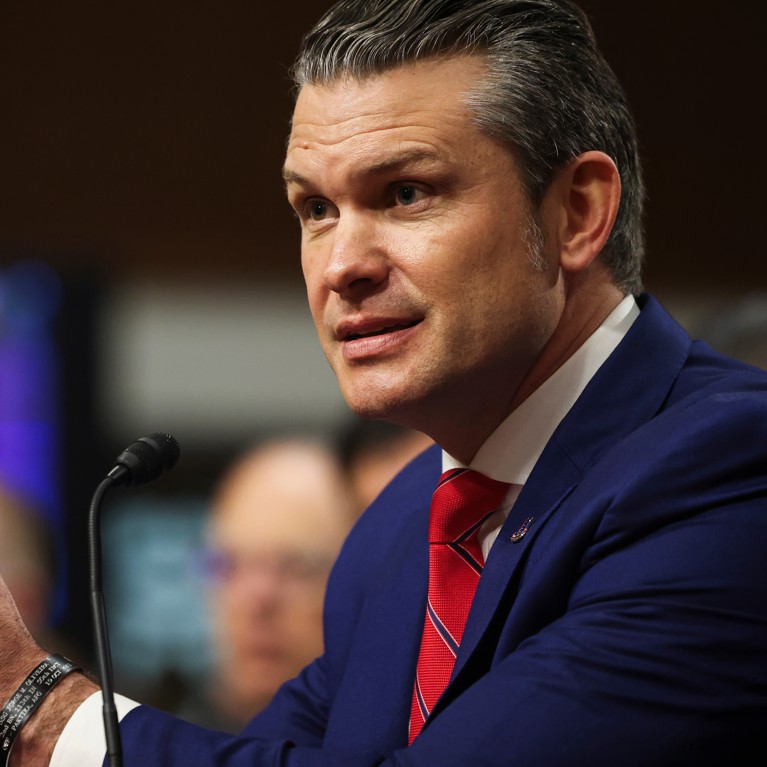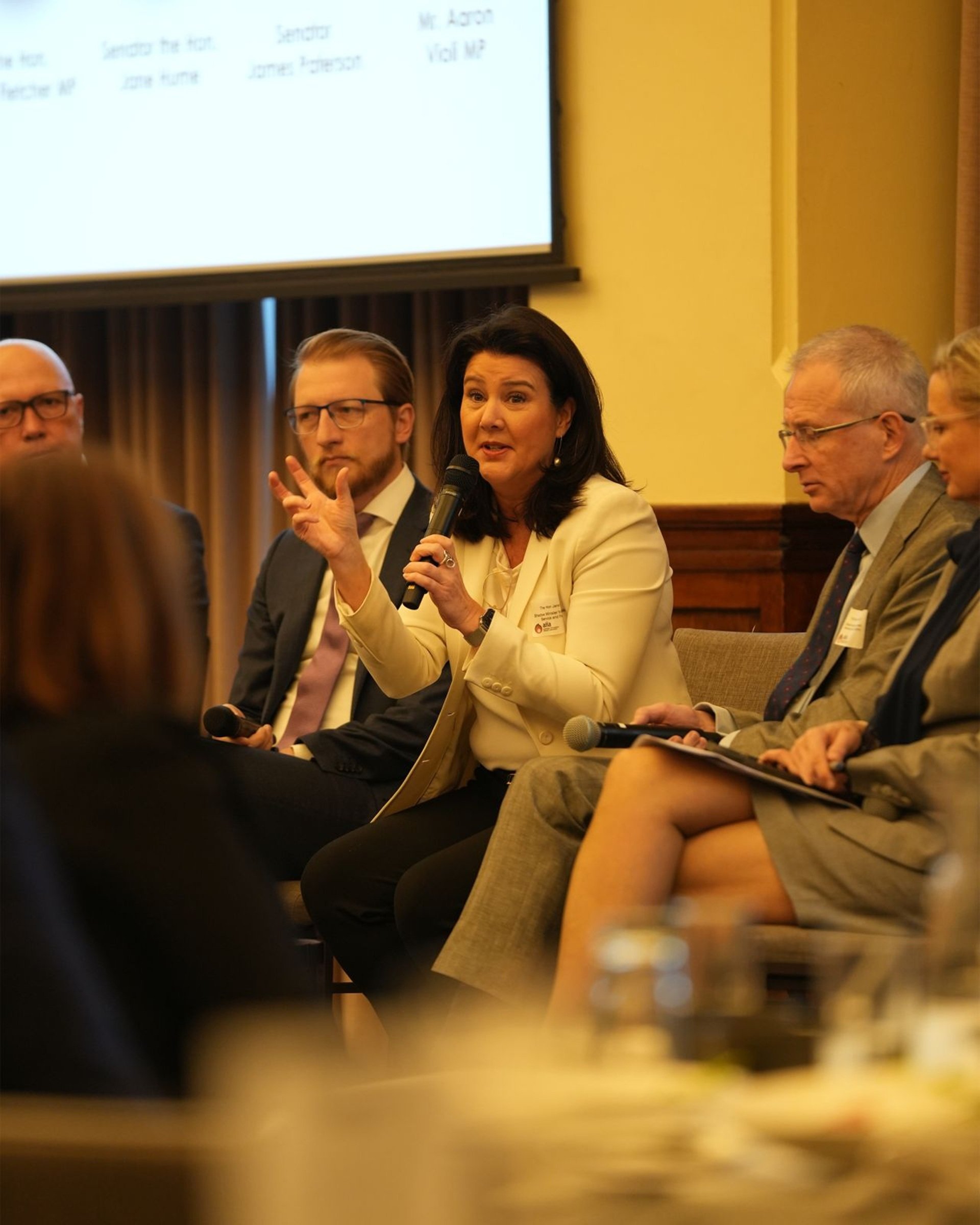- Posted on 10 Jun 2025
- 5-minute read
This article appeared in Crikey on June 10 2025.
On the sidelines of the Shangri-La Dialogue in Singapore, US Defence Secretary Pete Hegseth spoke of the possibility of a Chinese invasion of Taiwan, saying, ‘There’s no reason to sugar coat it. The threat China poses is real, and it could be imminent.’
To ensure peace and stability in the Indo-Pacific, Hegseth demanded Australia lift its defence spending to 3.5 percent of GDP ‘as soon as possible’. Australian media paraphrased this as ‘Australia must do more to support the US’.
The response of Australia’s political leaders to these remarks ranged from wholehearted endorsement, to tacit agreement, to indirect rejection.
First, let’s be clear: there is no fundamental disagreement in the policy debate over the prospect of the US going to war with China over Taiwan. However, there is a fundamental disagreement over why a war over Taiwan is possible and if and why Australia should spend more on defence.
To some security policy hawks, a war is possible because Xi Jinping’s China is aggressive and hell-bent on taking over Taiwan, and if China invaded, the US would have to defend Taiwan to defend America’s strategic interests and ensure peace and stability in the Indo-Pacific. To moderate foreign policy thinkers, a war is possible because the US sees Taiwan as crucial to its strategic interests and could not tolerate a challenge from China to its primacy in the Indo-Pacific.
But could this scenario of a possible US-China conflict over Taiwan lead China to invade Australia? Well, this depends on whether Australia wants to help the US preserve its declining primacy in the Indo-Pacific region, or whether it would be prepared to live in a bipolar or multipolar world in which the US no longer has such primacy.
The Australia Institute’s Allan Behm asks:
“Hegseth spoke about the imminence of the China threat. America may well need an enemy to define its ambition and to sustain its sense of insecurity. But the question is: do we?”
There is no consensus in Australia in response to Behm’s question. As La Trobe University’s international relations scholar Bec Strating observes:
“We talk about the world in official documents and leaders’ speeches as if it’s multipolar; we think about the world as if it’s bipolar, because we are too focused on the US and China ... but we would really like it to be unipolar.”
It is this desire to be permanently hitched to the US wagon that endangers Australia, according to Hugh White. In the latest Quarterly Essay, ‘Hard new world: Our post-American future’, White says:
“In today’s world, the threat to peace comes as much, or indeed more, from efforts to preserve the US-led unipolar order as from efforts to replace it with a multipolar order.”
To make this argument more concrete, White says:
“Today the only circumstance in which Australia could credibly find itself under attack from China would be if Australia joined America in a war with China over Taiwan.”
In White’s thinking, Australia does have a choice over whether to let China become a real threat: either we have an independent foreign policy that does not rely on the US, or we maintain our dependence on the US as our protector, thereby risking a proxy war with China.
White is a strategic realist. He’s making this point not because he is a ‘panda hugger’ or because he loathes America; in fact he has previously said he would prefer the US to remain the dominant force in the Indo-Pacific region. He just does not want to ignore the mounting evidence that America’s power and influence in this region is waning and can no longer be relied on to keep us safe.
To many Australians, including our political leaders – who are used to the warm and fuzzy ‘illusion’ (White’s word) that our alliance with the US will keep us safe – White’s message to the Australian government and public is neither warm nor comforting:
“We should tell Washington that we will not go to war over Taiwan. We should accept and acknowledge the reality that America will not be keeping Asia safe for us, nor providing an ultimate security guarantee. And we should free ourselves of the debilitating assumption that we cannot look after ourselves.”
As for whether Australia should increase its defence spending, White believes we might have to, but only to ensure that we can look after ourselves, not because Trump’s administration wants us to. As far as White sees it, the issue is not whether our defence spending should be increased; rather, it is to sort out how best to spend our defence budget:
“The key step is to decide that our armed forces must be designed primarily to defend Australia independently rather than to support America in a war with China. Once that is agreed, it becomes much easier to decide what capabilities we need.”
The Lowy Institute’s Sam Roggeveen, who argues Australia should behave like an echidna that curls into a ball and relies on its spines for protection, agrees with White. He thinks a more ‘respectable’ reason for lifting defence spending is precisely that the US has become less reliable.
As historians tell us, Australia’s fear and anxiety about external threats are not new. We feared China/Chineseness during the gold rush, the White Australia period and the Cold War. We then feared the Japan threat in the 1980s, and the Indonesia threat towards the end of the 20th century. Now, Australia fears the China threat once again.
But Australia has also lived in fear of abandonment, first by mother Britain, then by Uncle Sam. This entrenched fear of external threats, when combined with the fear of being abandoned by an external powerful protector, makes a paradigm shift in our foreign policy almost unimaginable. But reimagine we must, according to strategic realists.
That is why White believes a revolution in our foreign policy thinking – a revolution similar to the one that’s happening in Europe – is what Australia needs. Revolutions are never ‘easy and comfortable’. But given the cold ‘hard new world’ we’re in today, White believes that, while Australia should by no means sever its ties with the US, the sooner we abandon the illusion that America is going to manage China for us, the safer we will be as a nation.







